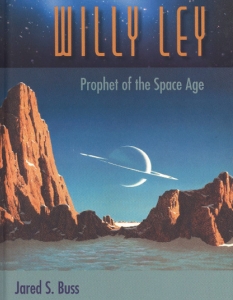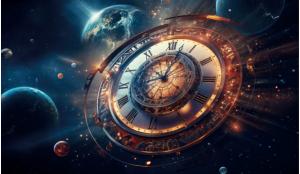In the early years of the Space Age - and even before Sputnik opened that new age - the subject was portrayed and publicised by a number of popularisers, none more prolific than the German-born American writer Willy Ley (1906-1969). According to the author of this analysis of Ley’s contribution to the field, he was “America’s most prominent rocket expert” in the 1940s and 1950s. To those who have studied a little space history, Ley is probably best known for his oft-reprinted 1949 book ‘The Conquest of Space’, famously illustrated by space artist Chesley Bonestell.
The first two chapters of this book focus on Ley’s formative years in Germany, illustrating particularly “how Ley constructed his identity as a freelance writer”. The following chapter discusses Ley’s disenchantment with pre-1935 Nazi Germany before the story moves to the US, where Ley settled in New York. Chapters 6 and 7 cover the post-war years, when he established himself as a ‘space expert’, and lead on to the Sputnik era in chapter 8. A final chapter, in the words of the author, “documents Ley’s declining prestige as a freelance historian of science”.
While this book is all about a science populariser, it is not, in itself, a popularised account; it is a formal history text (with 50 pages of chapter notes, a comprehensive 15-page index and just 10 black-and-white photos) and was written more for the space history community than the general reader. When one historian reviewer describes the book as “beautifully written”, he is arguably referring more to its adherence to the norms of historical research than to the transparency of its prose. For example, one doesn’t find sentences such as “Consequently Ley adopted non-Humboldtian views” in a popular science book.
That said, when addressing later criticism of Ley’s style, the author suggests that this might have been part of the “academic institutionalization of the history of science during the 1960s” – so he is at least aware of the dangers of leaving history to the academics.
Ultimately, it is worth persevering with this well-researched book - the text of which is enlivened with quotes from multiple sources - because it provides a valuable insight into the life of a true ‘Prophet of the Space Age’.











